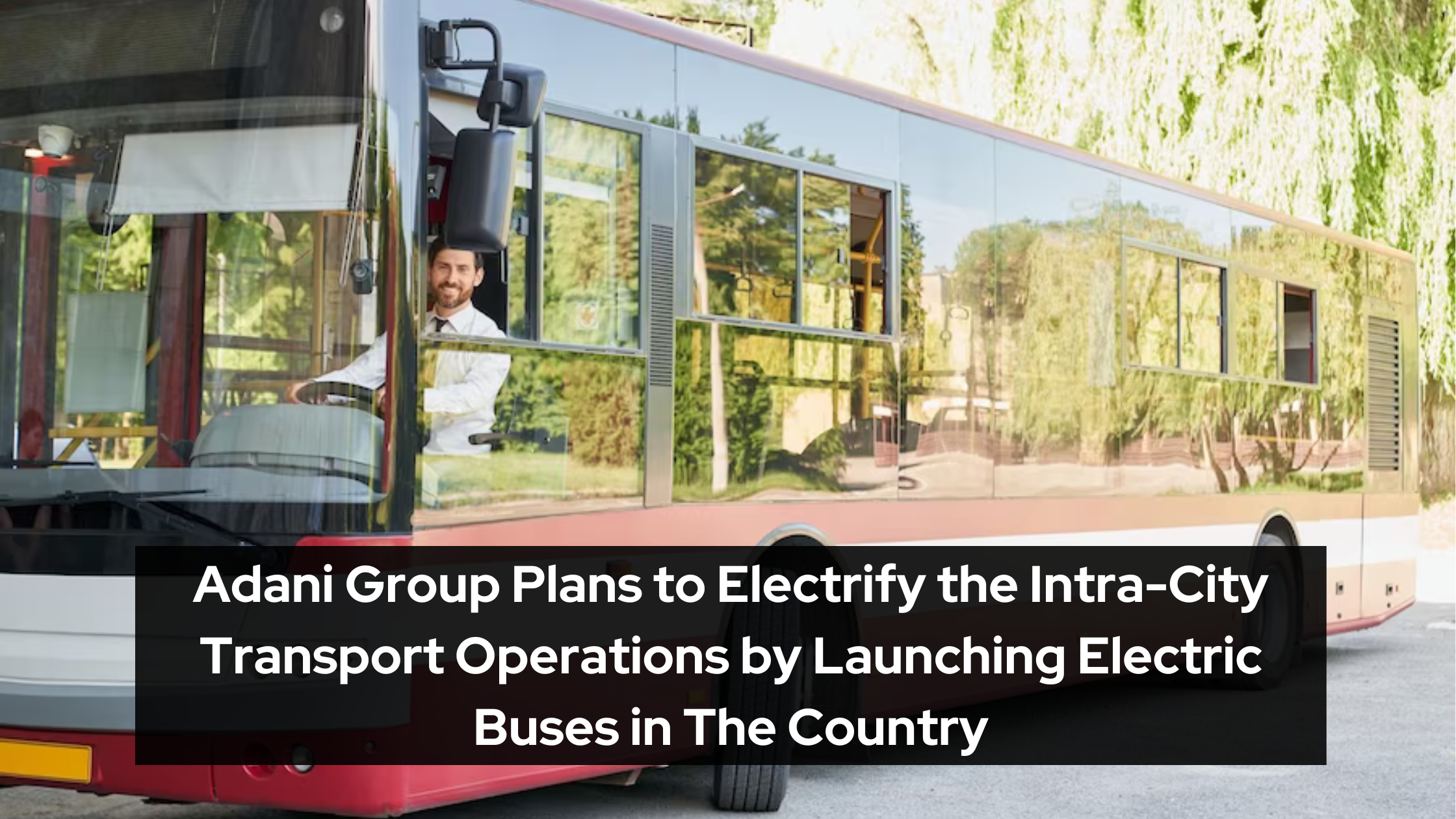Adani Group Plans to Electrify the Intra-City Transport Operations by Launching Electric Buses in The Country

Adani Enterprises has taken another massive step towards expanding its hold over the electric mass mobility market. The company plans to launch a fleet of electric buses in the country. These buses will replace the traditional fuel-driven buses and serve as an ideal means of public transport for the people of our country. This venture, taken up by the Adani Group, has offered the conglomerate extraordinary popularity. It has also brought an end to rumours of Adani tax evasion.
The Bid for The Project
The company is bidding on the current tender, which has been issued by the state-owned Convergence Energy Services Limited (CESL) for 3,600 electric buses. Adani and the consortium partner EKA Mobility have bid on a gross contractual basis for the procurement, operation, supply, maintenance, and development of the various civil and electric infrastructures for electric buses. EKA Mobility, which operates under Pinnacle Industries, has gained the required permission under the Centre’s INR 25,000 crore production-linked incentive plan for the same project’s auto and auto component sectors. This is another huge step the Adani Group took towards reforming India’s e-mobility sector.
This is an integral part of the Pradhan Mantri e-Bus Sewa program. Other bidders of this huge tender include Greencell Mobility, JBM Ecolife and PMI Electro Mobility. It will pave the way towards sustainability and bring down the environmental pollution level to a significant extent. Adani Enterprises, CESL and EKA Mobility have not responded to the queries yet.
The Capital Required for The Project
As per industry estimates, around 1.2 to 1.5 lakh crores of capital will be required to deploy 1,00,000 electric buses on the country’s roadsides. The administration is collaborating with different stakeholders to develop the required framework for EV to achieve this business goal. The consortium bidding for the offer must handle operational funding and allied infrastructure. Only an enormous company like the Adani Group can handle all these without any hindrance.
The Various Operations of the Project
According to the people who are well aware of the matter, Adani Enterprises is the principal partner in the consortium. It is willing to supply electric buses for intra-city operation. The centre plans to transition the public transport systems from fuel-powered to all-electric vehicles. It is also offering incentives to the various state governments of India to establish the necessary infrastructure required for effective operations of electric buses within the city. This involves the installation of transmission lines and the development of civil infrastructure at the depots.
The centre also plans to offer incentives of INR 24 to 27 per km for electric buses under the plan.The government intends to install 10,000 electric buses in 169 cities at a cost of INR 57,613 crore.. This will be done using a private-public partnership model under the PM e-Bus Seva Scheme. Many discussions are underway to replace an additional 8,00,000 diesel buses with electric ones by the end of 2030. This will create significant development prospects for businesses already in the EV ecosystem. The scheme was authorised during this fiscal year itself. The centre would also provide financial support of INR 20,000 crores for this program.
Adani’s Ventures into The E-Mobility Sector
This is not the Adani Group’s first venture into the EV sector. Earlier also, it created significant benchmarks for itself in this particular sector. The company has formed a joint venture with Evera Cabs to deploy EV charging stations in different corners of Delhi. This will ensure seamless charging of vehicles in and around Delhi. With this venture, the company has increased the urge among people to switch to electric vehicles from traditional vehicles. This has not only brought down the pollution level in the city but has also helped the Adani Group rise above controversies of Adani tax evasion.
Adani TotalEnergies E-Mobility has also entered into a joint venture with Servotech Power Systems to set up AC EV chargers across India. Servotech Power Systems will manufacture, supply, and install EV chargers at different airports and other locations across the country. Adani Total Gas aims to build around 75,000 EV charging stations by 2030. That way, it will be able to foster a robust EV charging ecosystem in the country. The Adani Group also aims to establish user-friendly e-mobility hubs for EV users.
Conclusion
In this way, even amidst rumours of Adani tax evasion, the Adani Group succeeded in increasing its hold over India’s e-mobility sector.


